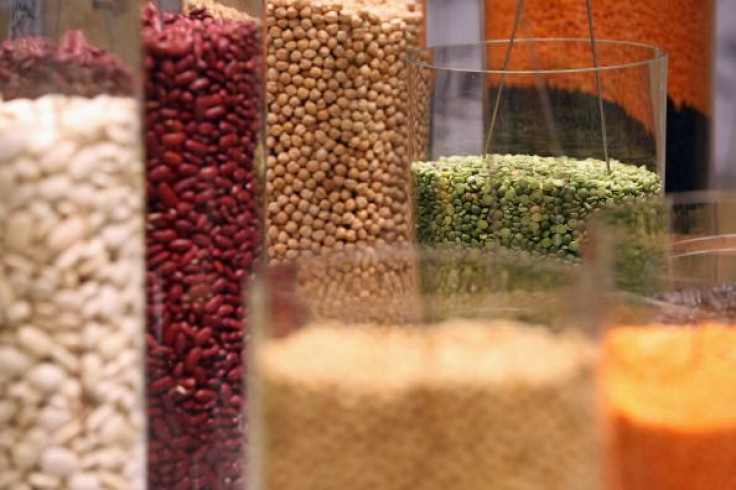Eating High-Fiber Foods, Like Beans, Peas, And Chickpeas, Is One Of The Best Ways To Lose Weight

A bowl of chili may be a better option than a salad when it comes to weight loss. A new study published in The American Journal of Clinical Nutrition demonstrates how one daily serving of beans, peas, chickpeas, or lentils has the potential to keep dieters feeling fuller, longer. A whopping 90 percent of weight loss interventions fail, and hunger and food cravings may be partly to blame. That makes the ability to stave off hunger a target to hit for successful dieting.
For the study, researchers examined 21 clinical trials that included a total of 940 adult men and women. Data from each study was pooled and averaged out to figure out how, over the course of six weeks, each participant’s weight changed after they followed a diet which included a daily single serving of beans, peas, chickpeas, or lentils, also known as “pulses.” Without changing any other aspect of their diet or physical activity routine, the participants were able to lose just over half a pound of weight. The research, conducted by a team from St. Michael’s Hospital in Canada, builds on previous work that found a daily serving of pulses helps people control their weight and significantly reduce bad cholesterol levels.
"Despite their known health benefits, only 13 percent of Canadians eat pulses on any given day and most do not eat the full serving," said lead author Dr. Russell de Souza, a researcher at St. Michael’s Hospital, in a press release. "So there is room for most of us to incorporate dietary pulses in our diet and realize potential weight management benefits. Pulses increased the feeling of fullness by 31 percent, which may indeed result in less food intake."
Pulses have a low glycemic index, which means they break down and convert into energy for the bloodstream slowly, keeping hunger at bay. Foods that break down quickly, such as pineapple or macaroni and cheese, have a high glycemic index and give you a jolt of fleeting energy. Feeling full helps keep the body from giving into impulsive cravings. According to the Mayo Clinic, eating energy-dense, high-fiber foods can help with weight loss and beans are one of the healthiest choices because they’re also low in both fat and calories.
In another study published in 2015, a team of researchers from the University of Minnesota found that beans were also ideal for those trying to cut down on meat or switch over to a vegetarian diet altogether. Researchers fed participants two different lunches at random — one meatloaf primarily made from beef and a second one made primarily of beans.
While the meat provided 26 grams of protein and 3 grams of fiber, the bean loaf delivered 17 grams of protein but with 12 grams of fiber. Afterwards, researchers found that both groups of participants felt equally full. The fiber helps suppress appetite by slowing down the digestive process, which also aids in controlling blood sugar levels.
De Souza concluded: "Though the weight loss was small, our findings suggest that simply including pulses in your diet may help you lose weight, and we think more importantly, prevent you from gaining it back after you lose it.”
Source: De Souza R, Kim SJ, and Choo VL, et al. The effects of dietary pulse consumption on body weight: a systematic review and meta-analysis of randomized controlled trials. The American Journal of Clinical Nutrition. 2016.



























